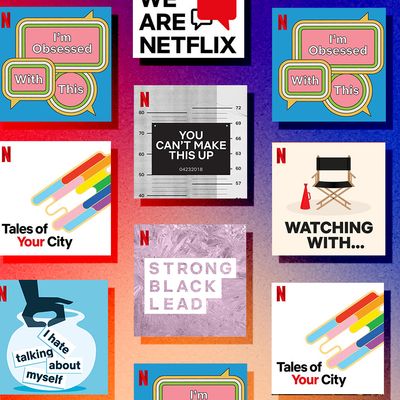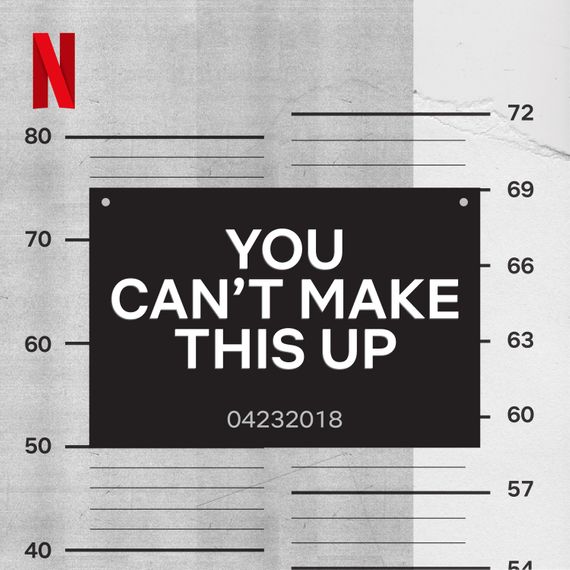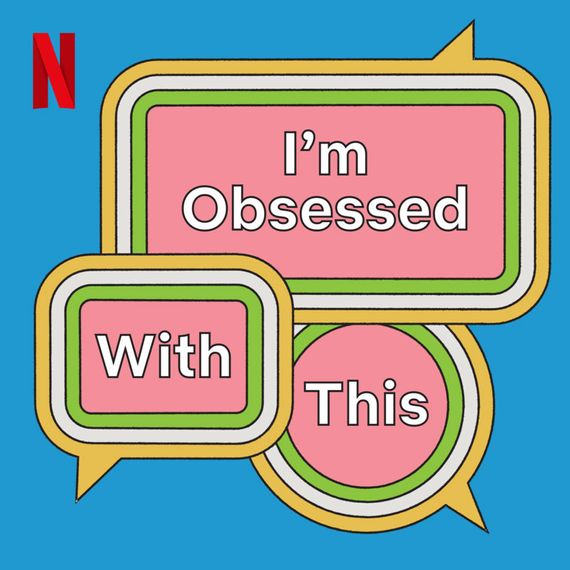
Podcasts created by big corporate brands to humanize themselves in the minds of everyday people ÔÇö or ÔÇ£branded podcasts,ÔÇØ as they are known in the biz ÔÇö are an increasingly common phenomenon these days. McDonaldÔÇÖs launched one a while back to plug the return of its Szechuan sauce. Tinder has one, as do Microsoft and Nike and Slack. Hell, even Goldman Sachs has one, though how youÔÇÖd humanize a giant octopuslike bank is anybodyÔÇÖs guess. So it shouldnÔÇÖt come as a particular surprise that Netflix, the all-consuming video distribution platform and entertainment company that has laid waste to countless waking hours, has bought into the trend as well. But what may be a little surprising is the way in which the company has done so: As it turns out, NetflixÔÇÖs various branded podcast adventures are far more peculiar, and in some ways, more interesting than one would otherwise assume.
At this writing, Netflix has about seven podcasts that are actively publishing, with more on the way. Two of them, The Human Algorithm and WeAreNetflix, are conventional branding exercises, pulling flesh and blood Netflix employees in front of the mic to talk about life (at Netflix) and shows that they love (on Netflix). But then you also have something like I Hate Talking About Myself, which offers very short episodes of various stars ÔÇö fresh off working on a Netflix production ÔÇö interviewing themselves using random questions pulled out of a bowl. On paper, the conceit sounds a lot like one of those #brandbuilding YouTube videos where celebrities read out mean tweets about themselves ÔÇö which is to say, a well-polished gambit to simulate the feeling of relatability. But in practice, these recordings occasionally treat you to an unexpected realism. For some of these stars (notably Ben Affleck, among others), one can often discern a real tiredness, and a tired realness. ItÔÇÖs in a sigh, a pause between sentences, a certain lilt to the way something is said. ItÔÇÖs intriguing, even if accidental.
The interestingness of these Netflix podcasts extends to a certain kind of media savviness. Several of these projects rely on a certain slice of the podcast community to populate the microphones: Strong Black Legends is an interview show led by Tracy Clayton, one half of the duo that powered BuzzFeedÔÇÖs widely beloved but now defunct Another Round podcast; Who? WeeklyÔÇÖs Bobby Finger hosts IÔÇÖm Obsessed With This, a conversation show roughly in the style of traditional TV recap podcasts where Finger is joined by a rotating crew of guests, often drawn from the Young New York Media scene, to discuss the latest Netflix Originals releases.
Perhaps the shrewdest of these efforts can be found in You CanÔÇÖt Make This Up. The podcast as a whole is designed to showcase different nonfiction or true-crime-flavored Netflix originals, and many of these episodes are hosted, in part or in full, by different notable podcast personalities. A recent episode featured LongformÔÇÖs Aaron Lammer interviewing Joe Berlinger, the director of Conversations With a Killer and Extremely Wicked, Shockingly Evil and Vile. Back in November, You Must Remember ThisÔÇÖ Karina Longworth was brought on to interview Morgan Neville, who directed the Orson WellesÔÇôfocused documentary TheyÔÇÖll Love Me When IÔÇÖm Dead. In October, the second season of Making a Murderer was the subject of an smartly populated roundtable discussion that included HeadlongÔÇÖs Dan Taberski and CriminalÔÇÖs Phoebe Judge. For a certain kind of podcast fan, You CanÔÇÖt Make This Up is basically Hollywood Squares.
Now, itÔÇÖs worth noting that this doesnÔÇÖt appear to be a scenario where Netflix, having successfully turned the film and television industries inside out, is looking to fully expand its ambitions into the radio and podcasting space. (Well, not yet, as far as we know.) The company considers these audio shows as ÔÇ£companion piecesÔÇØ to their core televisual product, and the production of these podcasts are handled by its ÔÇ£brand and editorialÔÇØ team, which sits in the marketing department. In other words, they are purely branded podcasts. Still, they are nonetheless strange and distinctly modern artifacts, a product of this very specific moment in time where consumers, particularly younger ones, are simultaneously more skeptical of advertising but also more accepting and covetous of good versions of it.
The trend also has an impact on the industry at large, of course. Branded podcasts are still thought by many advertisers to be a hot way of buying into the ongoing podcast buzz, and the paid work of producing branded podcasts has become an increasingly crucial part of the podcast economy. Advertising may be the dominant (and rapidly growing) revenue segment for the podcast industry, but for many podcast-makers ÔÇö especially the ones that arenÔÇÖt already big and established ÔÇö thereÔÇÖs still quite a bit of uncertainty over the reliability of advertising dollars to drive their businesses. As such, many podcast creators, particularly those who have gone on to start their own independent studios, often turn to making podcasts for brands on contract as a more reliable source of income.
ThatÔÇÖs why the branded-podcast trend probably isnÔÇÖt going to go away anytime soon, and why weÔÇÖre likely going to keep a lot more of them being made. But it doesnÔÇÖt necessarily mean weÔÇÖre going to see many good versions of them, or even ones that are remotely interesting. Which is why NetflixÔÇÖs growing portfolio of branded podcasts, occasionally surprising and savvy as they are, is so intriguing.
You can reasonably understand the opportunity for Netflix here. Television, movie, and pop-culture podcasts are vibrant segments of the podcast ecosystem. TV podcasts, in particular, have over the years become meaningful parts of the cultural economy, with the ability to deepen and sustain the life of a show or a property far beyond its actual run time. The Bachelor, for example, has spawned an entire podcast universe that keeps fans engaged, mints minor celebrities, and sustains the conversation within and beyond seasons. And then thereÔÇÖs the RingerÔÇÖs Binge Mode, along with the entire cottage industry of Game of Thrones podcasts, whose deep dives collectively create a persistent space for fans to stay connected and work out their feelings about the show (even when the actual show turns out to be less than satisfying).
Capturing and re-creating that experience is probably the grand goal for branded podcasts developed by a media entertainment company like Netflix. But itÔÇÖs fair to be skeptical about the possibility of the actual corporation behind a piece of media seeding the conversation around that media with much effectiveness. If NetflixÔÇÖs goal is to replicate the effect of culture, TV, and movie podcasts ÔÇö that is, to create and carry out a conversation around a given show, thus extending its reach ÔÇö then itÔÇÖs hard to say that these podcasts are terribly effective. Whether itÔÇÖs Bobby Finger or Aaron Lammer behind the mic, you never quite shake the oozing feeling that comes with being sold something, despite how deep we are into this stage of late capitalism. ItÔÇÖs a kind of marketing uncanny valley: These Netflix podcasts are authentic-ish, but not quite enough. In any case, I canÔÇÖt help but listen.




